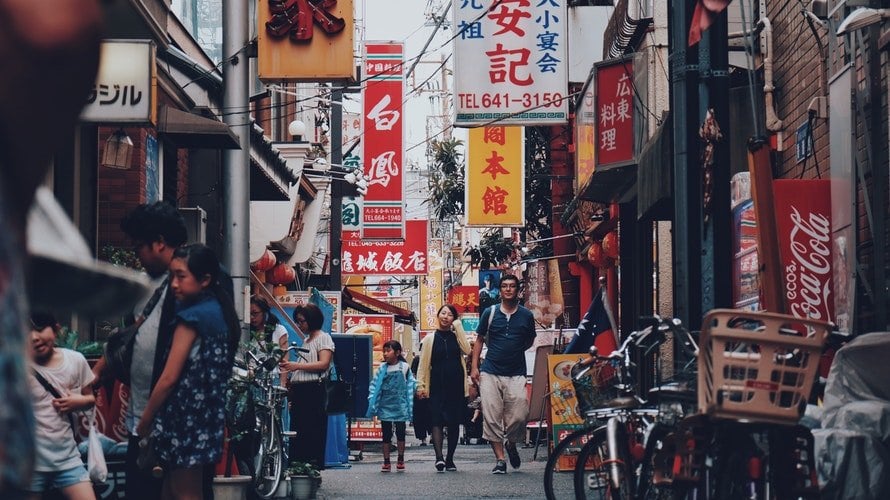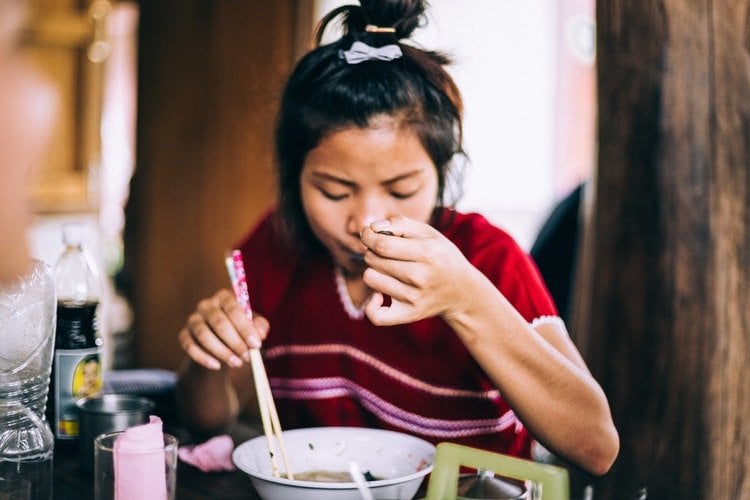9 Tips for Living with a Japanese Host Family
Spending time with a homestay family is one of the best cultural immersion experiences you can have while traveling in Japan. Here's 9 things you should know about living with a Japanese host family.

Spending time with a homestay family is one of the best cultural immersion experiences you can have while traveling in Japan. Whether you're on a short trip, studying abroad for a semester, or taking a full gap year in Japan, it's worth it to try a homestay.
It's very common for Japanese families to welcome travelers into their homes and share their vibrant culture with travelers from across the globe. Japan is also one of the safest countries on earth, making it an excellent choice for a gap year.
That said, similar to visiting most countries the first time, Japan can be intimidating and, at times, challenging to navigate for travelers. When do you remove your shoes? How do you bow properly? What's the deal with all the buttons on the toilet? To be a good homestay guest and culturally conscientious traveler, you should research customs and etiquette before traveling.
That's why we at Go Overseas have compiled a list of 9 tips for a homestay in Japan:
1. Take off your shoes indoors!
It is a faux pa to wear shoes inside a home in Japan. When you enter a Japanese household, there will usually be a designated place by the door to put your shoes.
Once you've removed your shoes, there will typically be house slippers you will wear while inside. The only exception is when in rooms with straw mat floors, in which case you'll go barefoot.
The bathroom will have separate slippers from the main room. When you enter the bathroom, be sure to put on these designated slippers.
Don't forget to take these slippers off when leaving the bathroom, either! It's one of the worst etiquette mistakes you can make while traveling in Japan.
2. Don't forget a gift
Even if you pay your host for a homestay experience, you should still be sure to bring a small gift. The best gifts are small, inexpensive tokens that represent your home country.
If you're from Australia, bring a mini stuffed koala. Are you from London? Buy a Big Ben keychain. You can even get a few candy bars, specialty treats (like coffee or tea), or postcards from your home country. If you know there will be kids, bring something small and memorable for them.
If you're from the U.S., consider bringing a baseball cap from your home baseball team. Baseball is a popular sport in Japan!
Food and drinks can be fun as well. For example, why not bring pancake mix and maple syrup to give your host family an authentic "taste" of your home country?
3. Expect to be busy
Your homestay family will likely take your tasks seriously.
Expect to be continuously entertained from the moment you walk in the door. Your family will most likely be very excited to introduce you to their city and culture. They may take you around town, to a nice restaurant or even hiking outside the city.
You may be exhausted and overwhelmed by the attention and activities, but you'll be sure to have fond memories when you leave. Just be conscious of taking part in all the activities and try to eat any food they offer you (with the obvious dietary restrictions taken into account).
4. If You speak Japanese, push yourself to practice

While some homestays speak English, others do not -- which is fantastic if you're there looking for a Japanese language immersion experience.
No matter your level, try to push yourself to spend a weekend with a family that doesn't speak English. It may be intimidating to immerse yourself in the language fully, but you should give it a try.
Your host may be excited to share their language with you and will most likely be amazed you can speak any of the Japanese. If you have no experience with the language, try using duolingo and learning a few common phrases before you arrive. You'll be sure to impress your hosts, and your efforts show them respect.
5. Don't shower using the bathtub
In Japan, you'll often find there's a showerhead outside the bathtub. Do NOT use the showerhead to wash inside the tub!
In Japan, you only use a bathtub after you have washed your body. Typically the whole family uses the same bathwater for a soak. Don't worry about the water getting cold, as these technologically advanced tubs have heaters to keep the water warm!
As a guest, you'll likely take the first bath, usually before dinner. To show respect to your family, take them up on their offer. Just be sure to clean yourself thoroughly before entering the tub because the rest of your family will be bathing in the same water after you!
6. Enjoy the robot toilet!
On a similar note, Japanese toilets are famous for their technological advancement.
Most toilets in Japanese households have a crazy amount of buttons. These can range from toilet seat warmers to squirting water up your behind!
Give each button a try or read up on how to use a Japanese electronic toilet if surprises in the bathroom aren't your thing.
Hey, it's a cultural experience!
7. Japanese apartments are tiny
From capsule hotels to cramped apartments, the living space in Japan is small. There's usually a reason why Japanese people use sliding doors in their homes. There may not be enough room for a door to open fully!
Living with the homestay family, you may not have an actual bed. Instead, expect a folded mattress, blankets, and pillows that you can set up in the evenings.
Many homes won’t have spare bedrooms, so you'll probably be sleeping in the living room. It's all part of the experience!
8. Don't forget Your table manners

With different etiquette than you’re likely used to, it can be challenging to know if you’re eating politely. From table manners to the Japanese version of "cheers!", here are the main points you need to know:
- Wait for everyone to be served before you take a sip from your glass. Usually, the host will yell "Kanpai!" which means "Cheers!"
- The small wet cloth given to you at most restaurants is for washing your hands before eating. Once you've done so, fold it and set it aside. Do not use it as a napkin or touch it to your face.
- When eating ramen, be sure to slurp your noodles! Honestly, it's considered polite in Japan because it shows you're enjoying the food.
- You may pick your bowl of rice off the table and hold it close to your mouth, especially if you're worried about your chopstick skills.
- Be sure to say “itadakimasu” with a slight bow before you dig in. It essentially means "thank you for this food.” This isn't a "thank you" to your host, but just thanks in general that you are fortunate enough to have food to eat.
9. Learn how to bow
Bowing customs in Japan are complicated. Most Japanese people do not expect foreigners to understand the intricate bowing rules, but a little effort goes a long way. Usually, the less respected person bows longer and deeper, but this is a very complex equation for most visitors.
A general rule of thumb is to follow the lead of the person bowing to you and only bow once. Do not "over bow" and make a show of bowing longer and deeper. This can be very offensive if someone is trying to show respect to you.
In general, men should bow from the waist and hold their hands straight at their sides. Your back should remain straight, and you should not bow more than 45 degrees.
Female bows are the same, except for the hands. Women should place their hands in a "fig leaf posture" (hands folded, covering your privates like the fig leaf in the statue of David). As a foreigner, you'll never quite learn how to bow properly, but any effort shows you’re trying.
Ready for a meaningful experience?
While it may be intimidating to navigate cultural differences and spend time with a family from another country, a homestay in Japan is one of the most meaningful experiences you can have during your visit or gap year. Expand your boundaries and comfort zone and work to immerse yourself in the culture. You'll come away with an immense appreciation for Japanese culture and hopefully a lifelong friendship.
